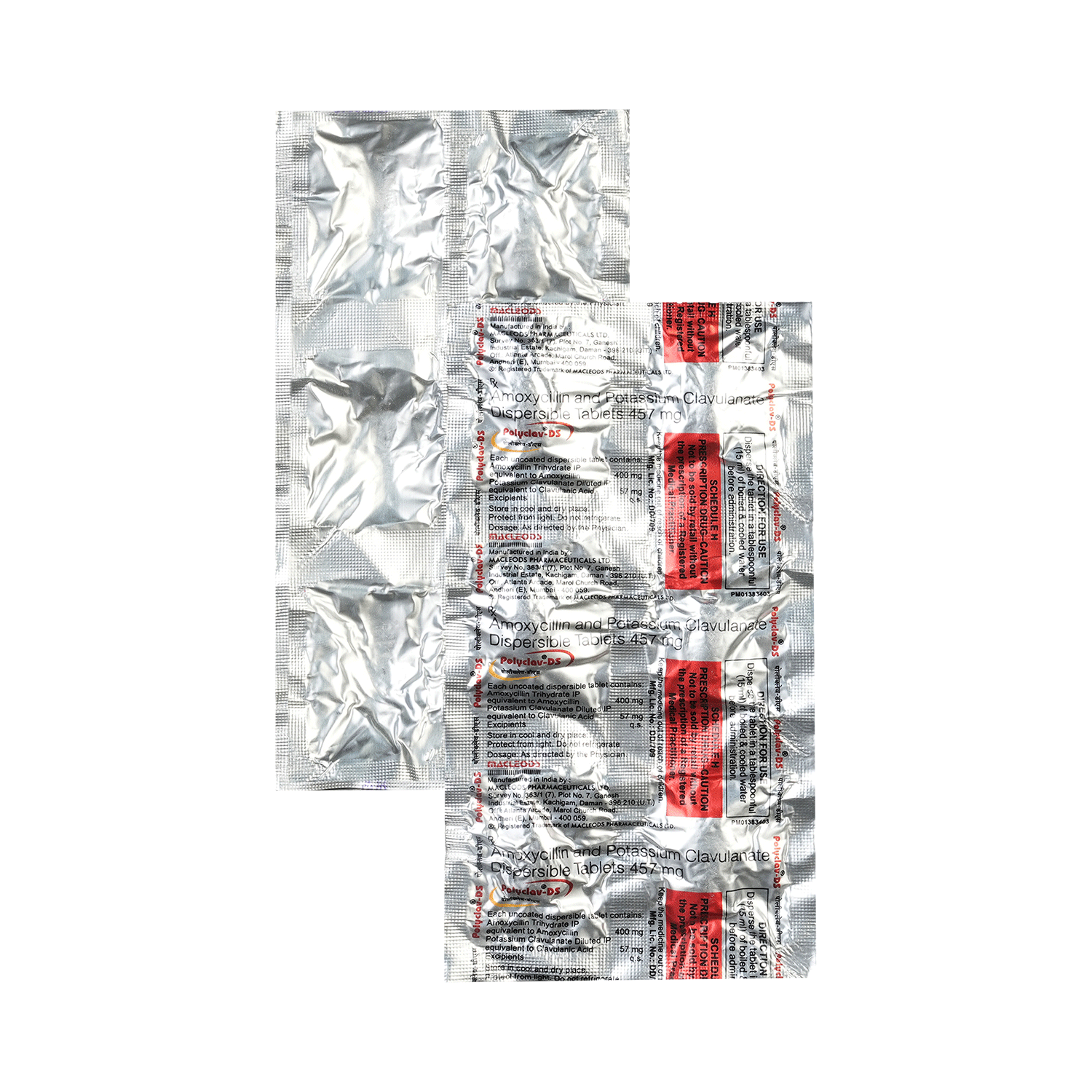


Polyclav-DS Tablet DT
Manufacturer
Macleods Pharmaceuticals Pvt Ltd
Salt Composition
Amoxycillin (400mg) + Clavulanic Acid (57mg)
Key Information
Short Description
Polyclav-DS Tablet DT is an antibiotic medicine that helps treat bacterial infections of the ear, nose, throat, chest, lungs, teeth, skin, and urinary tract.
Dosage Form
Tablet DT
Introduction
Polyclav-DS Tablet DT is an antibiotic medicine that helps treat bacterial infections of the ear, nose, throat, chest, lungs, teeth, skin, and urinary tract. It is capable of killing bacteria that have become resistant to other therapies and thus also helps treat tuberculosis that is resistant to other treatments.
Directions for Use
Your child must complete the entire course of antibiotics. Stopping too soon may cause the bacteria to multiply again or cause another infection.
How it works
Polyclav-DS Tablet DT is an antibiotic. It has two active agents amoxycillin and clavulanic acid. Amoxycillin works by preventing the formation of the bacterial protective covering (cell wall) essential for the survival of the bacteria. Whereas clavulanic acid serves a special purpose of inhibiting an enzyme (beta-lactamase) that is produced by resistant bacteria. This makes the combination of amoxycillin and clavulanic acid an effective line of treatment for many types of infections.
Quick Tips
Your child must complete the entire course of antibiotics. Stopping too soon may cause the bacteria to multiply again or cause another infection. Encourage your child to drink plenty of water in case diarrhea develops as a side effect. Never give Polyclav-DS Tablet DT until and unless prescribed by the doctor. Do not give Polyclav-DS Tablet DT to treat common cold and flu-like symptoms caused by viruses. Check ‘expiry’ before giving Polyclav-DS Tablet DT to your child. Immediately discard all the expired medicines.
Related Medicines
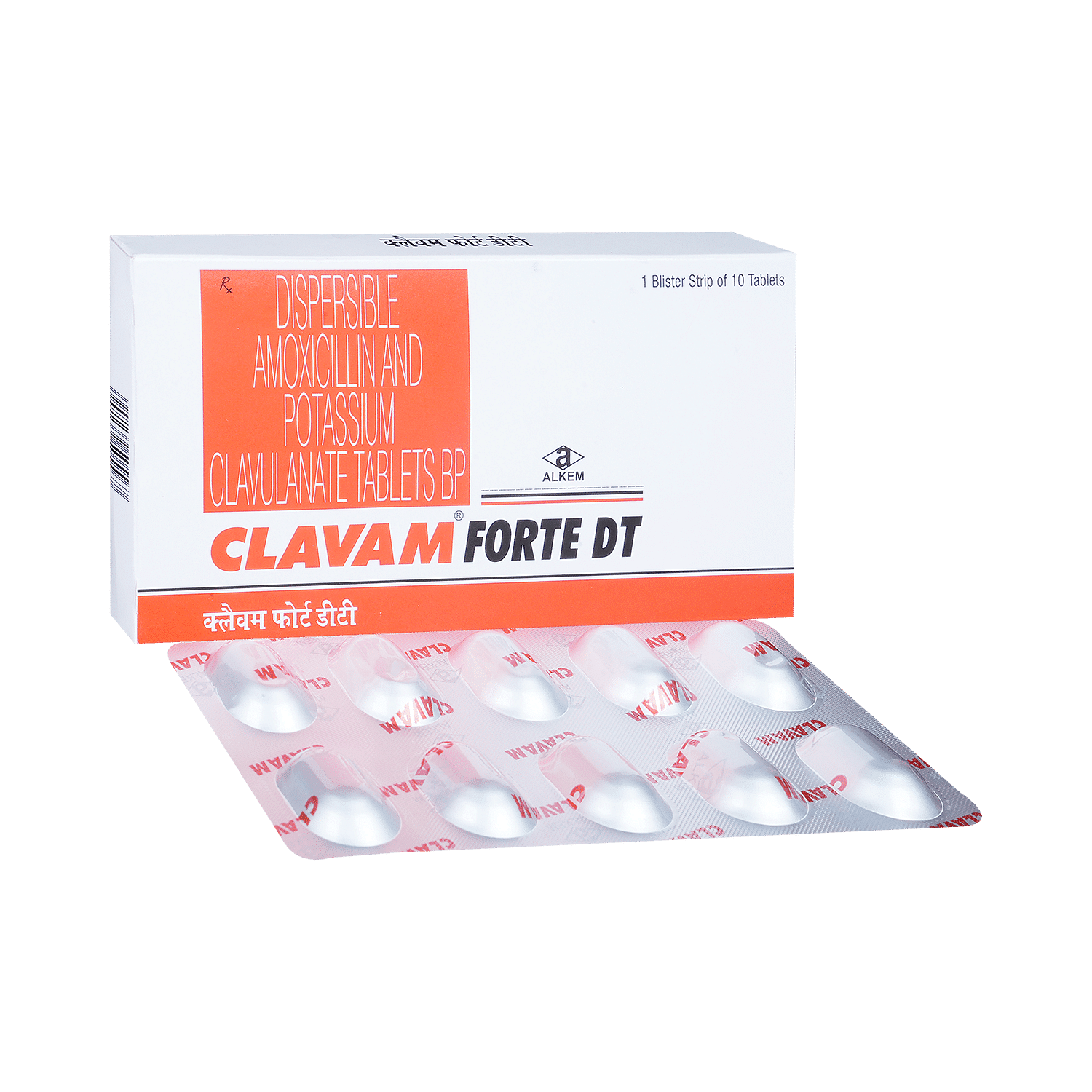
Clavam Forte DT Tablet

Laciclav Forte 400mg/57mg Tablet DT
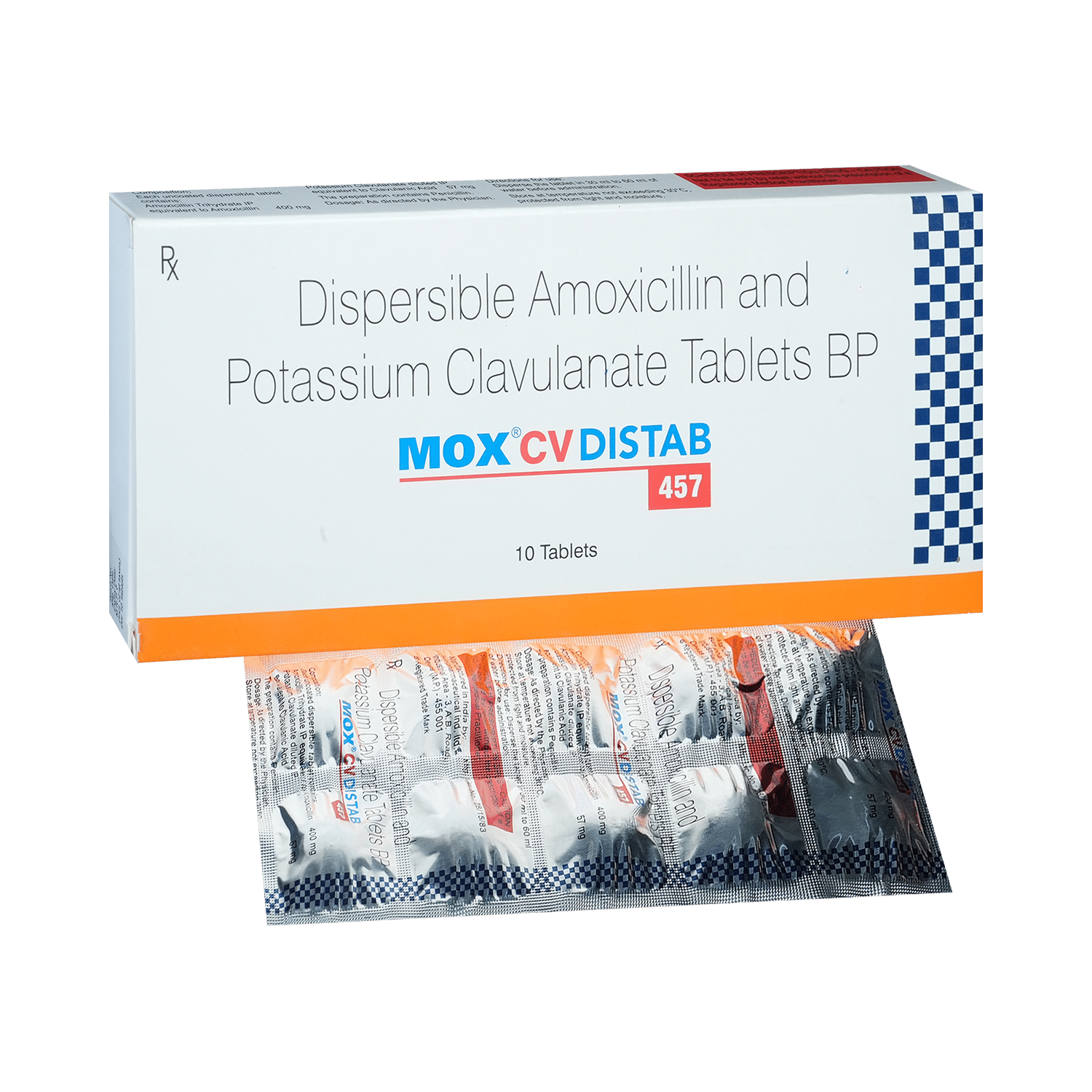
Mox CV 400mg/57mg Tablet DT

Advent 400mg/57mg Tablet DT
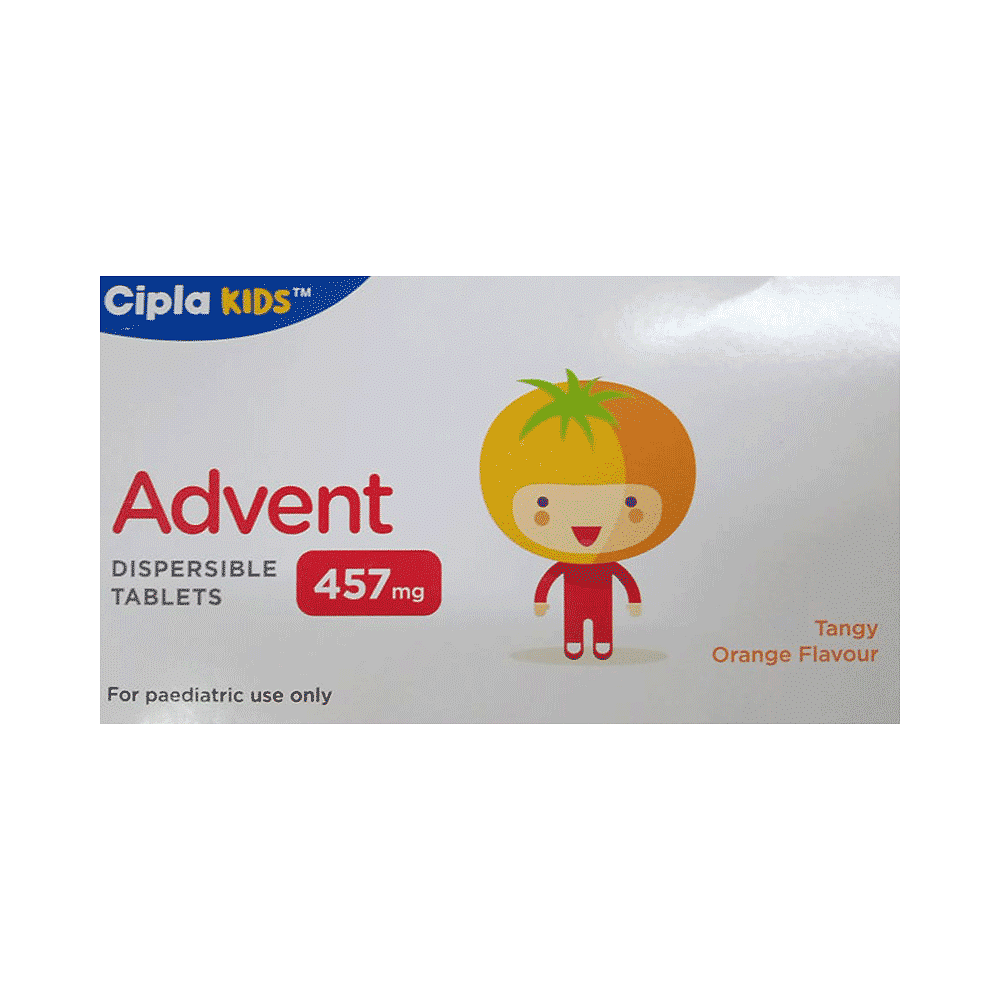
Advent 457mg Tablet DT Tangy Orange

Ronclav 400mg/57mg Tablet DT

Mega CV Forte 400mg/57mg Tablet DT
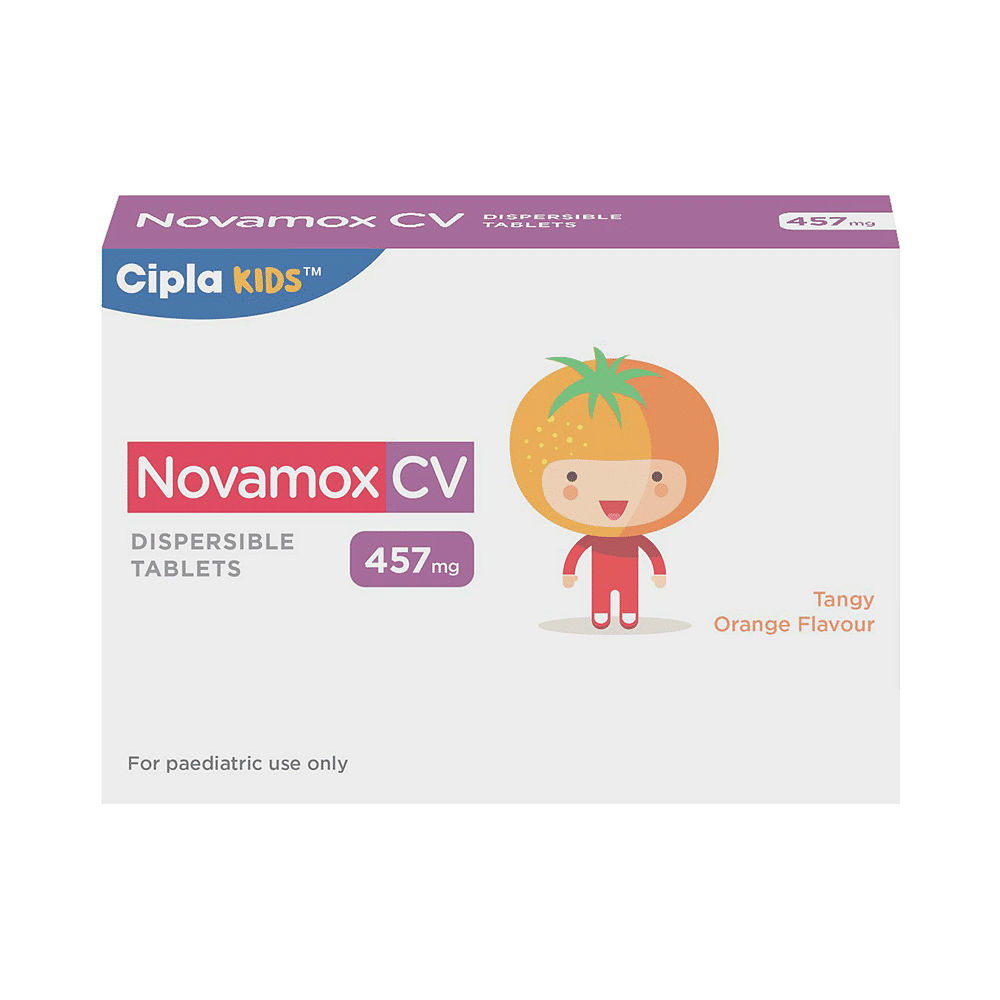
Novamox CV 457mg Tablet DT Tangy Orange
Frequently asked questions
Can other medicines be taken with Polyclav-DS Tablet DT?
It is essential to inform your doctor about any other medicines your child is taking before starting Polyclav-DS Tablet DT. Additionally, consult with your child's doctor before giving any medicine to your child to ensure safe and effective treatment.
Can my child receive vaccinations while taking Polyclav-DS Tablet DT?
Antibiotics like Polyclav-DS Tablet DT do not typically interfere with vaccine ingredients or cause adverse reactions in children who have recently been vaccinated. However, it is recommended to wait until your child has recovered from the illness before receiving a vaccine.
What lab tests may my child undergo while taking Polyclav-DS Tablet DT for an extended period?
Regular monitoring of kidney and liver function tests may be necessary to ensure your child's condition remains stable and to detect any potential side effects.
Can I give my child a higher dose of Polyclav-DS Tablet DT than recommended?
No, giving a higher dose of this medicine can increase the risk of side effects. If your child's symptoms worsen, consult your doctor for re-evaluation and guidance.
Can I stop giving Polyclav-DS Tablet DT to my child when their symptoms improve?
No, it is crucial to complete the full course of treatment as prescribed by your doctor, even if your child's symptoms improve. Stopping the medicine too early may lead to incomplete treatment and potentially prolong the infection.
Can Polyclav-DS Tablet DT cause diarrhea?
Yes, Polyclav-DS Tablet DT may cause diarrhea due to its antibiotic properties, which can disrupt the balance of helpful bacteria in your child's stomach. If your child experiences diarrhea, encourage them to drink plenty of fluids and consult your doctor if symptoms persist or worsen.
Do all viral common colds lead to secondary bacterial infections?
No, bacterial infections are not typically a result of viral infections. In fact, giving antibiotics for viral infections can increase the risk of side effects. Always consult with your child's doctor before administering antibiotics.
Is yellow-green mucus in my child's nose a sign of a bacterial infection?
Yellow or green mucus in the nose is a normal symptom of a common cold and does not necessarily indicate the need for antibiotics. Symptoms often last for 7-10 days.
Are there any signs that require immediate medical attention?
If your child experiences severe allergic reactions (breathing difficulties, skin rashes), gastrointestinal infections (diarrhea), or liver damage (weakness, paleness, vomiting), seek immediate medical attention. Although rare, these side effects are serious and require expert attention.


